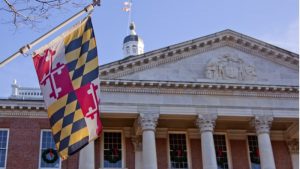Gov. Kathy Hochul of New York State has announced the start of a new $30 million cybersecurity program that aims at helping local governments across the state.
The Montana Department of Commerce (DOC) is the first agency in the state to become fully digitized, achieving Gov. Greg Gianforte’s statewide digital challenge.
Witnesses at a House Homeland Security Committee hearing on July 20 provided lawmakers with feedback about how local election officials are viewing security information being supplied to them by the Federal government, along with the need to train local officials on ways to defeat misinformation.
The Oregon Department of Corrections (DOC) has yet to fully implement important and critical cybersecurity measures, according to an audit report put out by the Secretary of State Shemia Fagan.
Maryland Gov. Larry Hogan has announced more than $127.6 million in broadband grants for local jurisdictions, Internet Service Providers, and community organizations, as well as education-specific grants that will expand infrastructure and provide wireless devices and equipment to Maryland’s K-12 students.
The Vermont Department of Public Service (PSD) and the Agency of Transportation (AOT) will start conducting new drive tests to gather data and determine mobile wireless coverage throughout the state.
The Federal Communications Commission (FCC) announced over $266 million in two new funding rounds through the Emergency Connectivity Funding (ECF) program to help close the “homework gap” for students that don’t have access to reliable broadband service and devices.
Federal Communications Commission Chairwoman Jessica Rosenworcel has put the agency’s wheels in motion to consider a four-fold increase in its definition of internet service speed that qualifies as “broadband” service.
Twenty-two different mayors from North and South American cities have banded together to join the Bloomberg Philanthropies City Data Alliance to be able to make better informed decisions based on data collection.
The House on July 12 approved by voice vote a bill that would provide surplus Federal government computer gear to educational institutions, veterans, individuals with disabilities, low-income individuals, students, or seniors in need.













